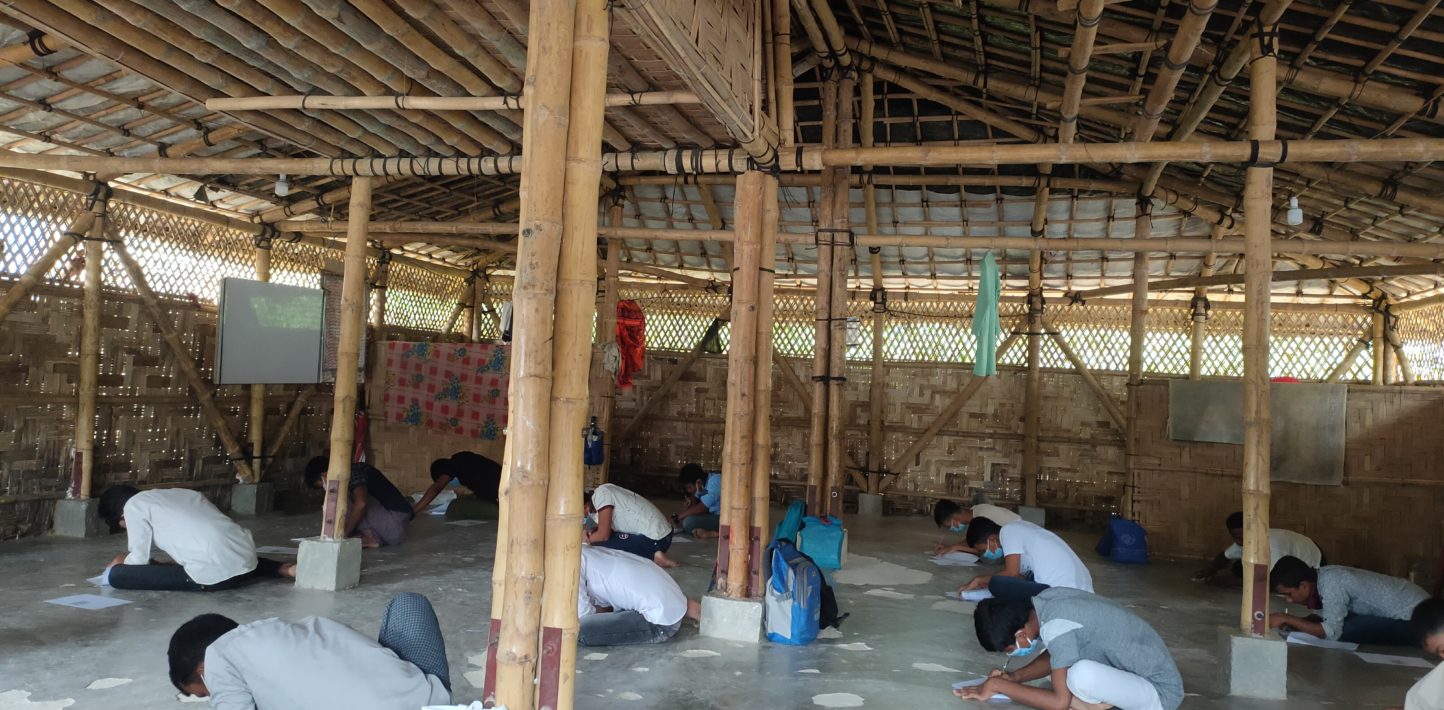I used to be a teacher in my village and now I teach in the refugee camp in Cox’s Bazar. It was never easy in Myanmar. Throughout my academic years, I had to endure so many forms of racial slurs for being a Rohingya. They would call us names that were humiliating. The Rohingya students were not given the attention that their peers from the mainstream Rakhine community would receive from teachers.
In March 2017, while I was still in Myanmar, my friends and I formed an organization called Rohingya Community Development Campaign, which sought to empower Rohingya children through education. We continued the work after we arrived in Bangladesh following the violence in Myanmar in August 2017.
In the camps, we do not have schools. We use our shelters and mosques as spaces to teach children the Myanmar curriculum. It’s a community service for which we receive no fees. We have about 700 students from 6 years to 10 years old studying between class one and 10.
I am doing this because I don’t want our children to become a lost generation. I feel this is my responsibility towards my community. With the right mix of knowledge and education, we can hope that they will inculcate a consciousness to make the right choices in life. We can hope that they will be less vulnerable to exploitation and trafficking, child labour and unlawful activities. Most importantly, we want them to be able to speak for themselves to the rest of the world.
But what we are doing is not enough. My colleagues and I are not able to provide students with textbooks and other materials that would improve their learning experience and quality of education.
Despite assurances from Bangladesh’s government to introduce the Myanmar curriculum, the pandemic has delayed the implementation. As a result, our children are losing invaluable years of learning. As they do not have the privilege of online education, it is important that the learning centers operated by the UN and humanitarian agencies in the refugee camps are reopened by taking precautions against COVID-19.
Bangladesh’s government and the people of this country have generously provided so many of us with a second chance at life. With access to education, we wish to overcome the decades of marginalization that brought us here.
We need the support of Bangladesh’s government and the humanitarian agencies to build schools and provide children with quality education. A Rohingya child, like any other, can become whatever they aspire to be, provided they are nurtured and given the opportunity.
Many Rohingya organizations provide education through community schools where they teach students from class one to 10 in the Myanmar curriculum. The Myanmar curriculum can help them reintegrate into the schooling system when they can return to their homes. No one wishes to stay in this condition forever.
Ro Yassin Abdumonab is a humanitarian worker and teacher at community learning facilities in the Balukhali refugee camp in Cox’s Bazar.
Do not forget to visit our Virtual Exhibition
Rohingya children's art for education


